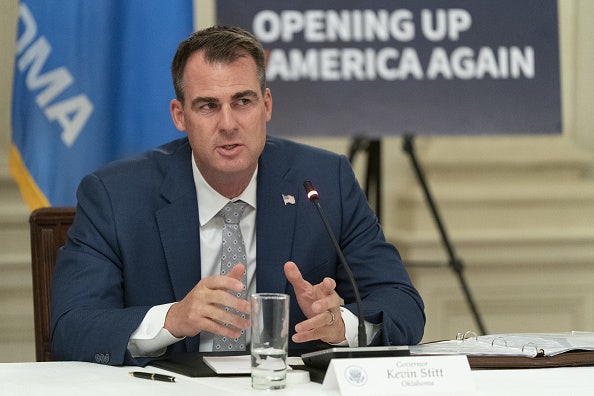Election season in Europe rarely sets the pulse racing. In the five I’ve covered since 1999, Brussels would be abuzz with chatter. But citizens, the people charged with voting in members of Parliament, did not seem to care that much. To them the election was at best a curiosity, at worst an inconvenience to be avoided.
Not this time. This year’s election, which takes place from Thursday to Sunday in all 27 member nations, has aroused the attention of Europeans across the continent. I’ve seen their interest firsthand. In the Netherlands, France, Switzerland, the Czech Republic and many other places in the past few months, I’ve spoken to groups of students, specialists and investors — but most often to ordinary citizens.
They listen attentively, hardly fiddling with their phones. Come question time, many hands go up. Everyone is interested in the bigger story: whether Ukraine will join the European Union, what can be done about the rise of illiberalism and how continental security can be achieved. Most of all, they are curious about what Europe is and where it might be headed.
What is going on here? Why is politics in Brussels, which has always been seen as boring and technocratic, suddenly becoming almost sexy? The answer is as irresistible as it is surprising. As citizens are drawn more into continental politics, the democratic deficit in Europe is slowly beginning to evaporate. Amid gloom about the far right’s advance, another story is unfolding, almost hidden from sight. Europe is coming to life.
Significantly, support for E.U. membership among citizens is on the rise. In a recent poll across member states, 74 percent of respondents said they feel like citizens of the European Union — the highest level in more than two decades. Two years ago, 72 percent said their country had benefited from E.U. membership, up from just 52 percent in 2005. That does not mean Europeans are suddenly elated with the union and the way it functions. But they are clearly happier in the European Union that outside it.
Turnout seems to be going up, too. After the first European elections in 1979, in which almost 62 percent of citizens voted, turnout decreased steadily, falling to just over 42 percent in 2014. In 2019, however, it went up for the first time to almost 51 percent. This year, it appears set to rise again — suggesting that the uptick in 2019 was not an anomaly but the beginning of a trend. One poll put the intended turnout at 68 percent, nine points higher than last time.
This does not happen in a vacuum. It is a reaction to the fact that Europe — to borrow from the former Swedish prime minister Carl Bildt — is not surrounded anymore by a “ring of friends” but by a “ring of fire.” The world around Europe has become turbulent in recent years, threatening its borders, its peace and its open economy. Brexit, Donald Trump’s presidency in the United States and especially Vladimir Putin’s invasion of Ukraine have shaken Europeans to the core.
Feeling weak and exposed, they have looked to their leaders for protection. National leaders, who make all the important decisions in Brussels, have responded. They now understand they can halt Mr. Putin, manage a pandemic and counter economic competition from China and America only if they act together. To do so, they have started working on European defense, health, energy and other issues that had always been kept strictly national.
As ever, member states have different opinions on how to handle them. But European citizens find debates on weapons for Ukraine or pandemic funds more exciting than those on, say, a new E.U. telecom package or child-friendly lighters. No wonder talk shows, podcasts and columns on Europe have proliferated in recent years. Citizens use them to get information and form opinions.
This has transformed the public perception of European politics. For decades, citizens identified Brussels with technical negotiations full of jargon on quotas or chemicals directives. Of course, this was exactly what European integration was supposed to do: depoliticize problems between member states so that they would not escalate and lead to war. Brussels’s battles over fishing or breakfast directives were signs of the European Union’s success.
But as early as the 1960s, the French historian Fernand Braudel warned that a cold, technocratic Europe could cause disaffection. “It would be mistaking human nature to serve up nothing but clever sums,” he said. “They look so pallid beside the heady, though not always mindless, enthusiasm which has mobilized Europe in the past.” Now Donald Trump, Boris Johnson and Vladimir Putin have stepped in, jolting Europe’s leaders to finally get serious about things voters care about: common weapons procurement, a digital strategy and the rule of law.
These external shocks had another important effect. They persuaded the far right to shelve its plans to leave the European Union. Leaders like Marine Le Pen in France and Geert Wilders in the Netherlands realized they would have a lot to lose on their own outside the union and instead chose to emulate Prime Minister Viktor Orban of Hungary, who uses E.U. membership as leverage in European power games. They also see that Prime Minister Giorgia Meloni of Italy, after taking her post-fascist party mainstream, has become one of Europe’s kingmakers.
Instead of railing against Brussels from home, far-right leaders now step onto the European stage, hoping to change the institution from within. To paraphrase the economist Albert Hirschman, they swapped the “exit” option for the “voice” option. This could of course be bad news, with Europe’s centrist parties seeming as poorly equipped to deal with the far-right challenge on the European level as on the national level.
There is a real silver lining to this development, however, that few talk about: The populists inject some drama into European politics. They come to Brussels bringing their insults, oversimplifications and fake news. Already, the participation of far-right candidates in debates and far-right infighting gets a lot of attention. No wonder. It is loud, mean and vulgar — exactly the theater that the continent’s politics has always had at the national level but never at the European level.
Some may balk at the spectacle. But this is what democracy is about: a contest of political views, played out in front of engaged citizens. There is no guarantee that the disagreement and potential turmoil to come will be to our taste. Yet it will, at least, draw citizens closer to the action and infuse the continent with some democratic spirit. Hopefully Europe makes the best of it.






